Published: April 26, 2024
By TalPoint Marketing weekly wrap up
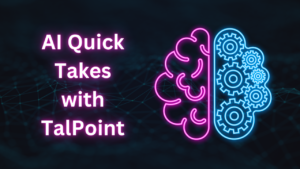
Your weekly source for news and updates on all things AI.
Looking for more regular updates from TalPoint? Follow us on Linkedin, Twitter, or visit us at TalPoint.com.
Read time: under 4 minutes
Generative AI Funding Hits $25.2 Billion in 2023
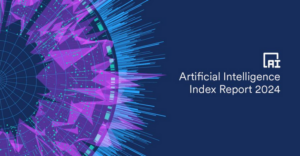
Explosive Growth in Generative AI Funding: Stanford’s 2024 AI Index unveils a staggering eightfold surge in funding for generative AI firms, skyrocketing to $25.2 billion in 2023. This surge, predominantly attributed to major players such as OpenAI and Anthropic, underscores a significant investor confidence in the potential of generative AI technologies. Major deals such as Microsoft’s $10 billion investment in OpenAI have fueled this remarkable expansion, heralding a new era of innovation and advancement in the field.
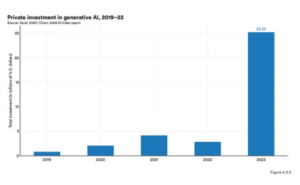
Global Dynamics of AI Investment: Despite a 20% decrease in corporate AI spending, which totaled $189.2 billion in 2023, private investment in AI witnessed an upward trajectory, particularly in the United States. In contrast, China and the EU experienced declines in private AI investment. The dominance of the U.S. in various AI technology categories highlights its robust ecosystem and commitment to advancing AI innovation, albeit with exceptions like facial recognition where China leads.
Escalating Costs of Advanced AI Model Training: The report sheds light on the soaring expenses associated with training advanced AI models in 2023. Notably, large-scale foundation systems such as OpenAI’s GPT-4 and Google’s Gemini demanded staggering sums for training, with OpenAI’s GPT-4 alone estimated to cost $78 million. This escalation in training costs poses challenges for academia, limiting access to cutting-edge AI capabilities due to prohibitive expenses.
Emergence of Multimodal AI Models: A noteworthy trend highlighted in the report is the proliferation of multimodal AI models capable of processing diverse data types. These models signify a significant advancement in AI research, promising transformative applications that integrate large language models with robotics or autonomous agents. Such advancements hold immense potential for enhancing real-world effectiveness across various domains, signaling a paradigm shift in AI-driven innovation.
Profluent Unveils OpenCRISPR-1, an AI-Designed Gene Editor
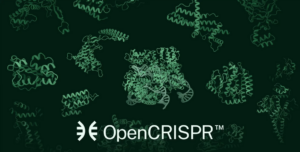
Profluent, an AI-first protein design company, has achieved a groundbreaking milestone in gene editing. Using OpenCRISPR-1, the world’s first AI-created and open-sourced gene editor, they successfully edited the human genome. This achievement holds promise for accelerating the development of precision treatments for genetic diseases. The AI-generated gene editor, consisting of a Cas9-like protein and guide RNA, demonstrates comparable or improved activity and specificity compared to existing editors. Profluent’s commitment to democratizing this technology is evident in their decision to freely license OpenCRISPR-1 for ethical research and commercial purposes. While the potential of AI-driven gene editing is vast, practical application in healthcare may still be distant due to the complexities of preclinical studies. Nonetheless, this breakthrough marks the beginning of a new era in gene editing, offering hope for more accessible and effective treatments for genetic diseases.
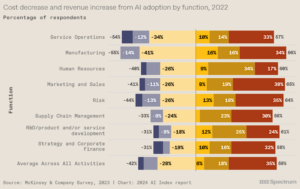
According to a recent McKinsey survey, companies integrating AI have experienced reduced costs and increased revenues. Specifically, 42% reported lower expenses, while 59% saw revenue growth. The survey’s findings indicate that this impact on the bottom line is due to efficiency improvements and enhanced worker productivity. Studies from various fields in 2023 corroborate this, demonstrating that AI enables workers to complete tasks more swiftly and deliver higher-quality output. Whether it’s coders using Copilot or professionals in consulting, call centers, or law, AI benefits all workers, with a particularly significant impact on those with lower skill levels.
Intel Develops World’s Largest Neuromorphic Computer System for Advancing AI Research
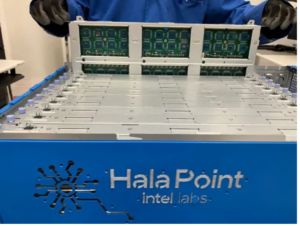
What is Hala Point: Intel has developed Hala Point, the world’s largest neuromorphic computer system, which emulates the complexities of the human brain. With 1,152 Loihi 2 processors supporting up to 1.15 billion neurons and 128 billion synapses, it achieves remarkable processing power.
Powerhouse Performance: Hala Point boasts impressive capabilities, supporting up to 20 quadrillion operations per second while consuming significantly less energy compared to GPU and CPU-based systems. Intel envisions its application in real-time continuous learning for various AI tasks, from AI agents to smart city infrastructure management.
Potential Impact and Future Directions: Neuromorphic computing, exemplified by Hala Point, represents a promising frontier in AI research. By mimicking the brain’s neural plasticity, these systems offer improved efficiency and adaptability. While Intel’s Hala Point is a research prototype, its advancements are expected to influence future products and contribute to reducing the computing intensity associated with AI.

Recast: With recast, you can transform the way you consume content, whether you’re on the go, working out, or simply looking for a more convenient way to stay informed. Recast takes the hassle out of reading long articles, by turning them into entertaining, informative, and easy-to-understand audio conversations.
———————————————————————————————————————————————————————————————————————————————————————————-
Thanks for reading. Until next weekend!
For questions and feedback, email us at marketing@talpoint.com. We would love to hear from you.